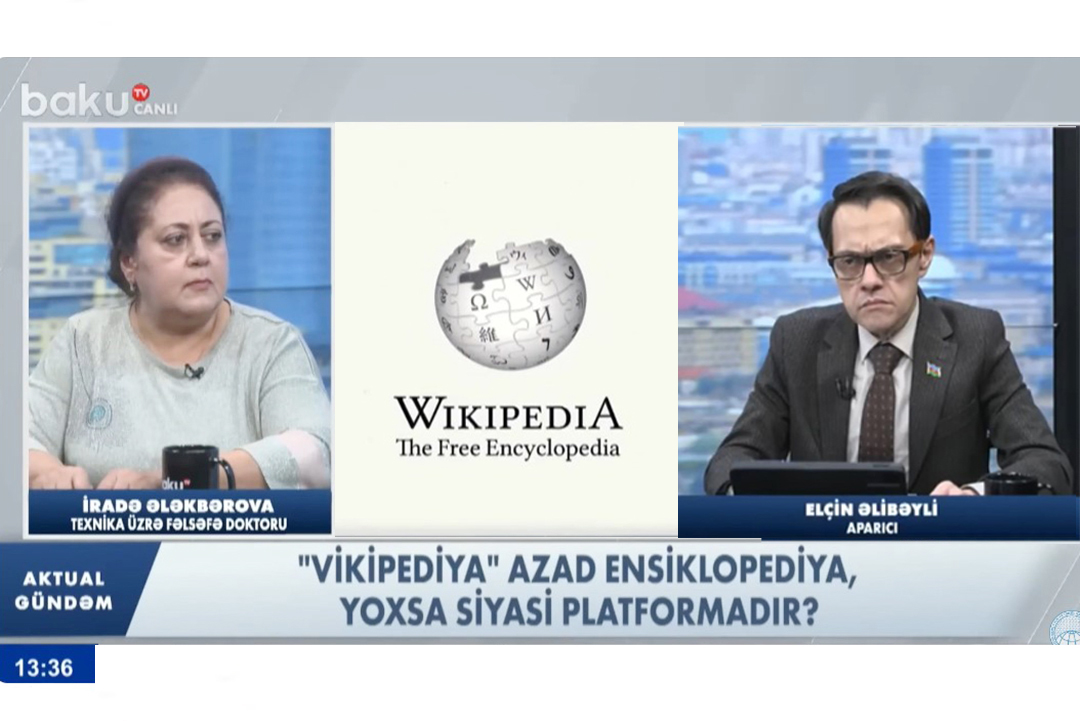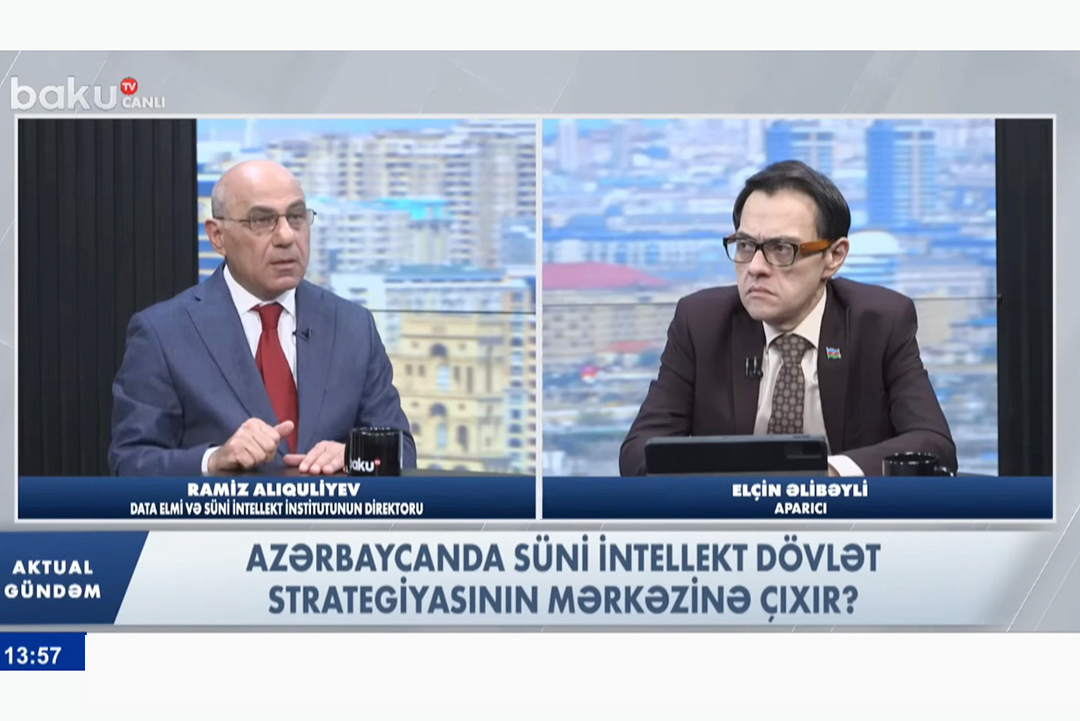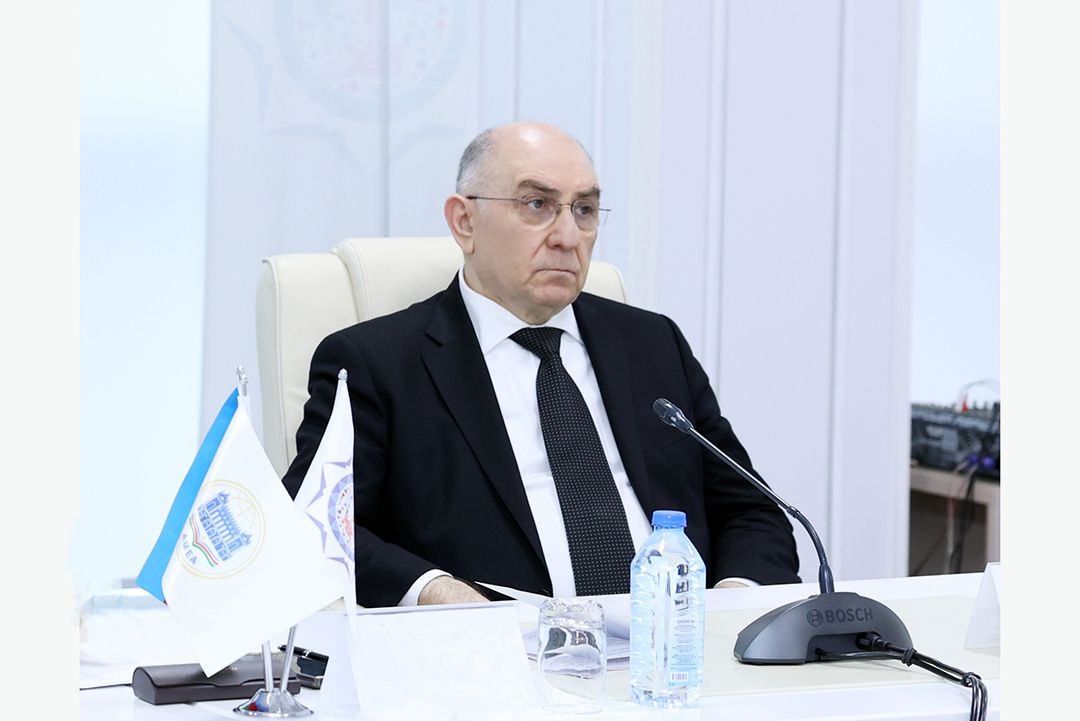NEWS
The scientific-theoretical problems of digital literacy are being investigated

The next scientific seminar was held at the Institute of Information Technology under the Ministry of Science and Education. At the event, Rasmiyya Mahmudova, Head of the Institute’s Training-Innovation Center and Doctor of Philosophy in Technology, delivered a presentation on "Digital literacy: challenges, conceptual views, opportunities, and prospects."
The speaker began her presentation by explaining the role of digital literacy in the modern information society. She stated that, under the conditions of digital transformation, equipping citizens with digital skills is of strategic importance not only for individual development but also for the formation of the national innovation ecosystem, social well-being, and economic sustainability.
Rasmiyya Mahmudova emphasized that the concept of digital literacy encompasses not only the skills to use technology but also multidisciplinary components such as digital ethical conduct, information security, resilience against disinformation, responsible use of artificial intelligence (AI), cyberculture, and media literacy. In this regard, digital literacy should be assessed as a complex socio-technological phenomenon integrating the unity of knowledge, skills, and attitudes.
During the presentation, global challenges affecting the development of digital literacy, including the problem of the digital divide, were analyzed extensively. R. Mahmudova noted that major disparities exist in access to digital resources between developed and developing countries, as well as between urban and rural populations. She added that this inequality leads to serious consequences for social justice, educational opportunities, and economic integration.
The speaker stated that increasing digital literacy is possible not only through the accessibility of technological resources but also through human capital development and the flexible adaptation of education systems. She drew particular attention to the integration of digital skills into curricula, the enhancement of teachers' digital competencies, and the development of digital education in the regions.
R. Mahmudova then provided information on the Strategy for Shaping Europe’s Digital Future. She noted that this document, adopted by the European Union in 2020, defines the key directions of the digital transformation process that will continue until 2030. The strategy aims to ensure that the digital economy is developed based on human-centered, sustainable, and secure principles.
The presentation dedicated a special section to the European Union's DigComp (The Digital Competence Framework for Citizens) model. This model defines the core competencies necessary for citizens to use digital technologies in a confident, responsible, and creative way. Rasmiyya Mahmudova stated that the DigComp framework makes a significant contribution to the integration of digital literacy into the teaching, assessment, and policy planning processes of European countries.
In addition, the speaker discussed methodological approaches for assessing digital skills globally, based on the UNESCO Digital Literacy Global Framework (DLGF) and studies such as the Organisation for Economic Co-operation and Development’s (OECD) PISA and the International Association for the Evaluation of Educational Achievement’s (IEA) ICILS assessments. She emphasized the importance of studying advanced practices from countries like Finland, Estonia, and Singapore by comparing the policies different nations implement for digital skills development.
The presentation also touched upon the targets defined in the "Digital Development Concept in the Republic of Azerbaijan." It was stated that the concept identifies the development of the digital economy, the expansion of technology applications, the optimization of digitalization processes, the creation of user-oriented services, and the provision of human resources with digital skills as priority areas.
In this concept, digital literacy is accepted not only as an objective but also as a fundamental condition for the sustainability of the digital society.
R. Mahmudova also drew attention to the concept of AI literacy against the backdrop of the increasing role of AI and automated systems. She noted that in the future, digital literacy will be measured not only by the ability to use technology but also by the capacity to collaborate with AI, critically evaluate its outcomes, and make ethical decisions.
Seminar participants exchanged views on the topic, putting forward proposals for the teaching, measurement, and assessment of digital literacy in the national context.
At the end of the event, Academician Rasim Alguliyev, Vice-President of the Azerbaijan National Academy of Sciences and Director General of the Institute of Information Technology, delivered a speech and noted the topical scientific and practical significance of the presentation. He emphasized that digital literacy has become one of the global scientific research directions in the modern era. The academician noted that the measurement, assessment, management, and analytical modeling of digital literacy indicators must be included among the institute's scientific priorities. Stating that the scientific-theoretical problems of digital literacy are multidisciplinary in nature, the academician provided recommendations for continuing research in this direction.
© All rights reserved. Citing www.iсt.az is necessary when using news.




